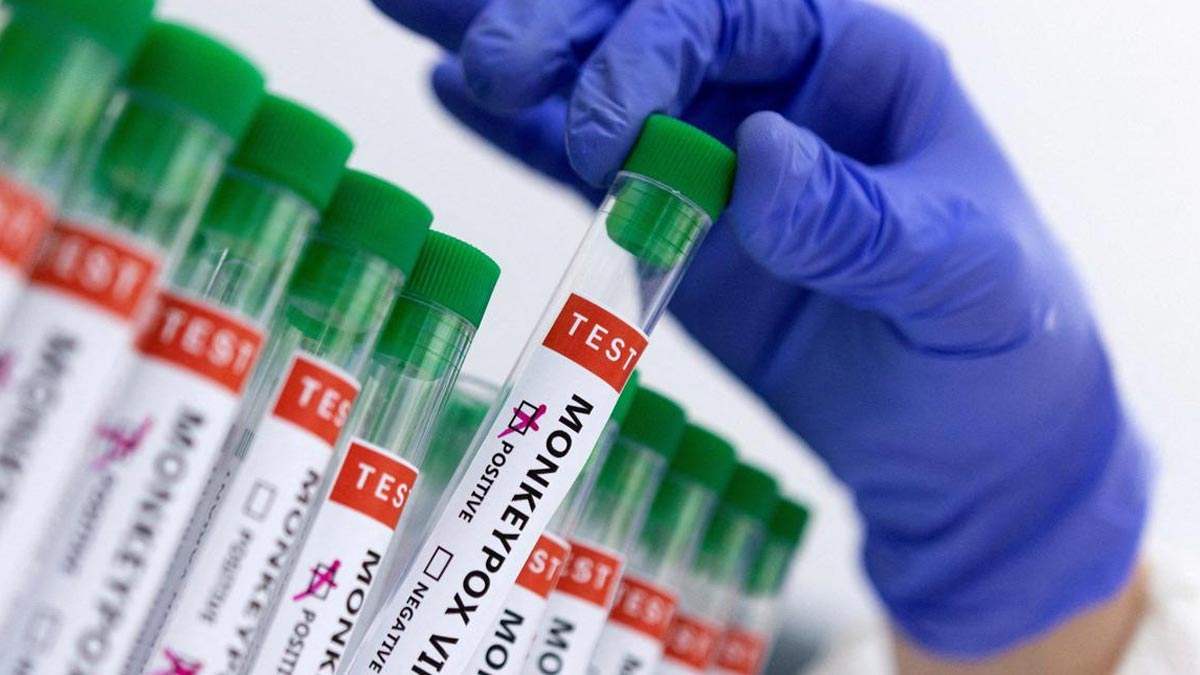
India has reported its first case of the highly contagious Mpox Clade 1 strain, causing heightened concern among health authorities. This development follows a recent declaration by the World Health Organization (WHO), which classified Mpox Clade 1 as a public health emergency due to its rapid spread and potential to cause severe illness. The detected case marks a significant public health milestone as India grapples with the emergence of this strain.
Table of Content:-
Case Identified in Kerala
The patient, a 38-year-old man from the Malappuram district of Kerala, had recently returned to India from the United Arab Emirates (UAE). According to official sources, the man is currently in stable condition and remains under close medical supervision. Health authorities have confirmed that the individual is infected with the Clade 1b variant of Mpox. This variant is known for its higher transmission rate and potential to cause serious complications.
India’s Ministry of Health confirmed the detection of the Clade 1b strain, which is particularly concerning given its aggressive nature. The spokesperson for the ministry, Manisha Verma, affirmed that the Kerala case is linked to the Mpox variant that has alarmed global health bodies in recent months. The confirmation came after earlier reports suggested the strain belonged to the Clade 1 lineage, the same variant responsible for WHO’s declaration of a global public health emergency.

WHO Declares Mpox Clade 1 a Global Threat
Mpox, previously known as monkeypox, has been an endemic illness in Central Africa for years, but the rise of the Clade 1 strain has escalated the situation. WHO recently declared this strain a public health emergency, citing its rapid transmission and the growing number of cases outside its endemic regions. This is the second time Mpox has been labeled a public health threat, after it was initially declared a Public Health Emergency of International Concern (PHEIC) in 2022.
In its latest report, WHO highlighted the severity of the situation in Africa, where more than 30,000 suspected Mpox cases have been recorded this year alone. Over 800 people have died from suspected Mpox infections, with the majority of cases coming from the Democratic Republic of Congo (DRC). The outbreak has also extended to neighboring countries like Burundi, where health systems are struggling to contain the spread of the virus. The increasing number of cases and fatalities in these regions underscores the global threat posed by Mpox Clade 1.
Also Read: Rapid Response Team to Investigate Rare Chikungunya Manifestations In Pune
India's Previous Mpox Cases and Response
India has previously reported cases of Mpox, but they were linked to the less severe Clade 2 strain. In fact, a recent case in the national capital involved a 26-year-old man from Hisar, Haryana, who tested positive for the Clade 2 variant. While Clade 2 is also concerning, it has not shown the same level of transmission or severity as Clade 1b. Since WHO's initial declaration in 2022, India has reported approximately 30 Mpox cases.
With the emergence of the Clade 1 strain, India’s health authorities are stepping up their efforts to monitor and contain the virus. Kerala, which has previously been at the forefront of managing infectious diseases, has already begun implementing preventive measures, including heightened surveillance and contact tracing. The state has extensive experience handling viral outbreaks, having managed the Nipah virus and COVID-19 in recent years.
Global Impact and Health Measures
Mpox Clade 1 is endemic to Central Africa, with cases predominantly reported from countries such as the DRC. This strain has proven to be fast-spreading, which is why WHO has called for a coordinated global response. The virus can cause severe illness, particularly in vulnerable populations such as immunocompromised individuals, pregnant women, and children. The global health community is now working on ensuring that vaccines and treatments are distributed to the most affected regions.
The United Nations health body has emphasized the urgent need for improved testing and vaccination in countries most affected by the outbreak. Limited access to testing kits and vaccines in Central African nations has exacerbated the crisis. WHO is urging nations to ramp up efforts in controlling the spread and is closely monitoring the situation in countries like India, where cases have started to emerge.
Also Read: Dengue Resurgence: Chandigarh Reports 722 Cases, Panchkula Tops with 503
Outlook and Future Implications
The detection of Mpox Clade 1 in India is a reminder of the virus’s ability to cross borders and spread rapidly. While the patient in Kerala remains stable, the potential for further cases in India poses a significant public health challenge. As the WHO continues to lead global efforts to contain the virus, India will need to stay vigilant in its response to prevent the widespread transmission of Mpox.
As this new strain gains global attention, public health experts stress the importance of timely intervention, vaccination campaigns, and raising awareness to manage the outbreak effectively. With international travel resuming in full force, the global community must act swiftly to control the spread of Mpox Clade 1 and prevent further public health emergencies.
Also watch this video
Read Next
Artemis Hospital x OnlyMyHealth Organized Walkathon and Zumba Sessions To Promote Heart Health
How we keep this article up to date:
We work with experts and keep a close eye on the latest in health and wellness. Whenever there is a new research or helpful information, we update our articles with accurate and useful advice.
Current Version
